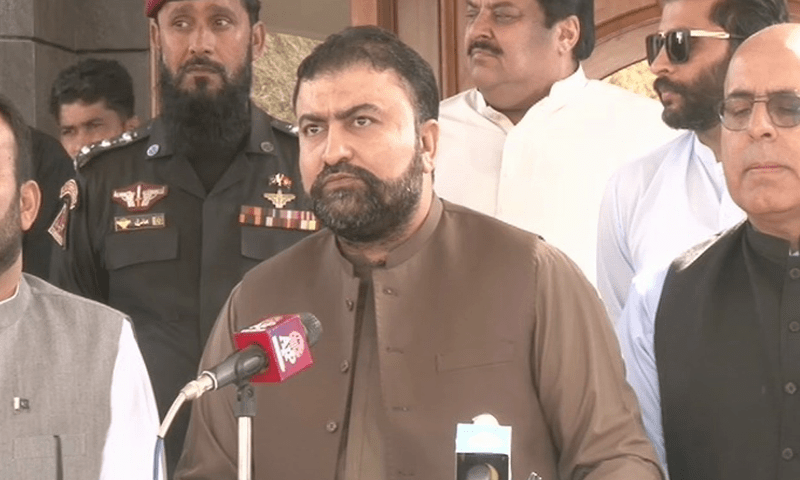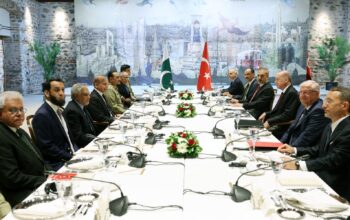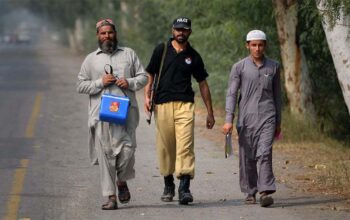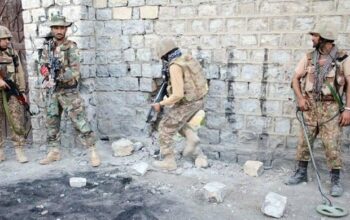By Staff Reporter
ISLAMABAD: Pakistan’s interim interior minister on Saturday accused India’s intelligence agency of being behind the recent terrorist attacks in Balochistan, a restive province that has been plagued by violence for decades.
Sarfraz Ahmed Bugti, who took charge of the ministry last month, said that the Research and Analysis Wing (RAW) was involved in the attacks that targeted religious gatherings and security forces in the province.
“Those playing the role of a facilitator, whoever is doing this — be it anyone, whatever you may call it — they all are the same for us, all have the same origins, all are being handled from one place, RAW is behind all them,” Bugti told reporters in Quetta, the provincial capital.
Bugti’s remarks came a day after a suicide bomber struck a procession marking the birthday of Prophet Muhammad (PBUH) in Mastung, a town about 30 miles south of Quetta, killing at least 55 people and injuring more than 60 others. It was one of the deadliest attacks in Balochistan this year.
Balochistan is Pakistan’s largest but least populated province, rich in natural resources but mired in poverty and underdevelopment. It has been a hotbed of separatist insurgency, sectarian violence and militant activity for decades.
So far, no group has claimed responsibility for the attack. The banned Tehreek-i-Taliban Pakistan (TTP), which has carried out some of the bloodiest attacks in Pakistan, also denied its involvement.
The minister did not provide any evidence of Indian involvement in the recent attacks in Pakistan, though officials in Islamabad have always accused New Delhi of orchestrating such incidents to destabilize Pakistan.
India and Pakistan have long accused each other of supporting proxy groups to destabilize each other’s regions. The two nuclear-armed neighbors have fought three wars since their independence from British rule in 1947, two of them over Kashmir, a disputed territory claimed by both sides.
Pakistan has witnessed a surge in the militant attacks in the two western provinces located near Afghanistan following the 2021 Taliban return to power in Kabul.
According to the statistics compiled by the Pakistan Institute for Conflict and Security Studies, the first half of the ongoing year saw about 80 percent increase in attacks compared to the corresponding period in 2022.
Analysts said the country lacked a coherent policy to eradicate the menace of militancy and deal with armed groups like TTP and Daesh.
Bugti vowed to pursue the terrorists to their “dens” and said that the policy of appeasement would not “happen anymore.”
“What we know is that these appeasement policies adhered to — what we saw in the past two to three years — there is no tolerance for that.” He added that the state knew where the terrorists were operating from and asserted, “We will go to their dens, where they are nurtured and which are their safe havens, and we will go against them.”
The minister said sometimes an attack would be carried out by one organization and another would claim its responsibility, and that the recent attacks were being investigated.
“Whether it is Daesh or TTP or anyone else… anyone committing violence under any banner… violence will only be exercised by the state,” Bugti said while vowing to hunt down the terrorists.
Copyright © 2021 Independent Pakistan | All rights reserved




